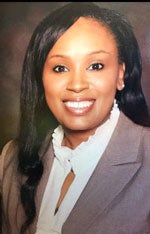Developing the Academic Amnesty Plan
Published 12:23 pm Friday, April 30, 2021
|
Getting your Trinity Audio player ready...
|
A Southampton County Public Schools committee composed of faculty, staff and parents of students has begun devising an Academic Amnesty Plan to help students who are struggling due to the changes in the educational process made amid the COVID-19 pandemic.
At the Monday, April 12, Southampton County School Board meeting, At-Large Board Member and Board Chair Dr. Deborah Goodwyn explained how the committee and the developing plan came into being.
“We’ve talked about the need to make sure that students are learning but that students are not being penalized for the way that instruction is being delivered,” she said.
As a result of that discussion, the school board asked Southampton County Public Schools Superintendent Dr. Gwendolyn P. Shannon to provide information on how the division is going to help these students, Goodwyn said.
Shannon noted that she went to her team at the division level regarding the board’s request, and she and her team talked about what they thought the Academic Amnesty Plan should consist of.
“But more importantly, we talked about who should be a part of the committee, because we did not want it to be just faculty and staff, but we also wanted to reach out to the parents,” Shannon said. “So we did reach out to a number of parents. Some did not respond, but we do have some parents on the committee, and Mrs. (Kelli) Gillette is over the Academic Amnesty Committee.”
Gillette shared Monday some of what had come out of the committee’s time together to that point.
“The committee that came together, they were excited,” she told the board. “They were ready to move forward with the students that need help. And we looked at areas where students were deficient, and we knew that despite everything that we had done to change our instruction for virtual learning that we still weren’t reaching some of our students.”
To facilitate efforts to aid these students, the committee organized them into different categories, Gillette said.
“Are they students that were doing very, very well before virtual learning came and now they’re not doing as well, or they’re making all B’s and now they’re making C’s?” she said. “We looked at students that continue to struggle and are struggling even more being virtual. We also looked at students needing help with motivation. Are they actually doing what they need to do at home?”
Gillette said it is well known that students are expected to be independent and have responsibility, but she pointed out it is hard for them to meet these expectations when competing against other things while at home.
“We also talked about supervising students to make sure that things are being accomplished, looking at teachers and parents going behind the students and things that we could do,” she said.
The committee has discussed ways the school system could reach the students in need.
“It came down to phone calls, which we’re already doing, but we didn’t know that we need to update our phone numbers,” Gillette said. “Many of the phone numbers do not work, and we need to find numbers that do work.”
She said the committee has also taken into consideration students who are still not connected to the internet at home, and the group brainstormed ways to help them.
“If we could get them a laptop and use an SD card and have the lessons taped on those, then they wouldn’t have to have an internet connection to watch the lessons,” she said, noting the possibility of making this idea a reality is being looked into.
She said the committee has also discussed home visits and one-on-one help.
“We even discussed having parent fairs, even if that has to be Zoom, to discuss some tips they can do to help with their kids if they’re not with them one-on-one,” Gillette said.
She noted that looking at students by age and grade, the committee has asked, “What are the expectations of a first-grader compared to a fifth-grader compared to an eighth-grader?”
Credit recovery has also been a topic of committee discussion and is something Gillette said members will be talking about more with the summer approaching.
“We need to look at all the data and group the students,” she said.
Gillette indicated all of the aforementioned points of consideration are being put into a Google Doc that each member of the committee can read and edit.
“We do plan to meet again, hopefully this Friday, to put some of this in action now,” she said, referring to the group’s ideas.
Goodwyn said she is sure the board will hear more about the Academic Amnesty Plan from the committee as the semester progresses and as the board begins to develop a plan for summer instruction.
“Sounds like a great committee,” she said.






